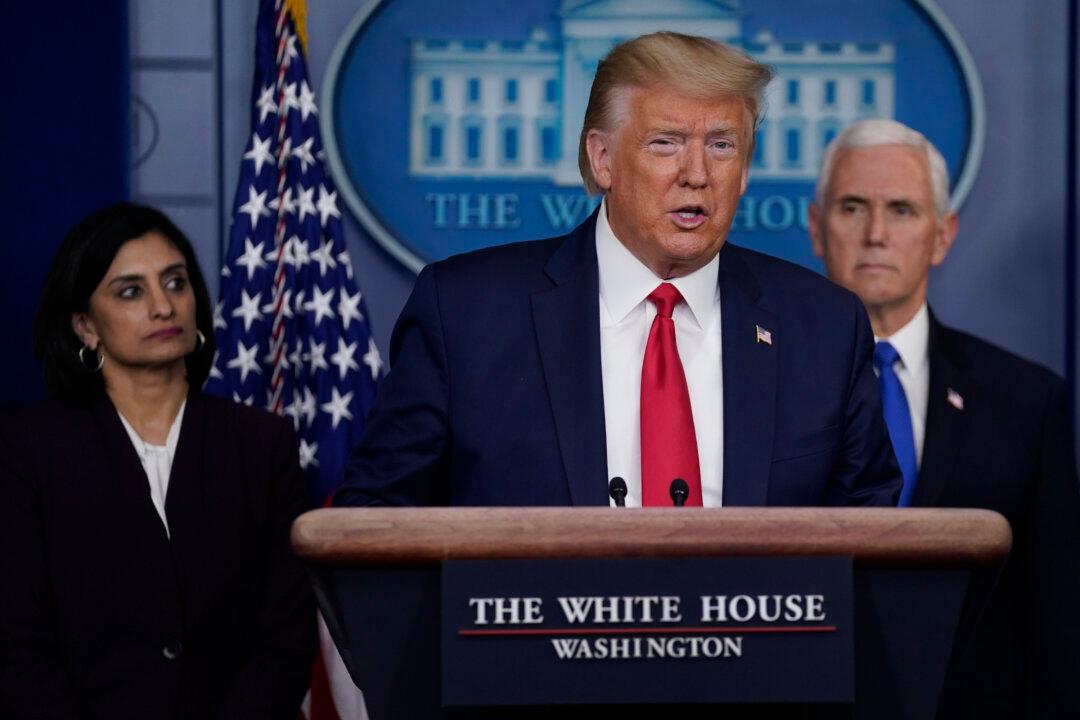President Donald Trump announced at a White House briefing that he was invoking the Defense Production Act (DPA) to expand the supply of resources available to deal with the COVID-19 outbreak.
“That’s always the toughest enemy, the invisible enemy, but we’re going to defeat the invisible enemy,” Trump said at the March 18 briefing. “I think we’re going to do it even faster than we thought.”





